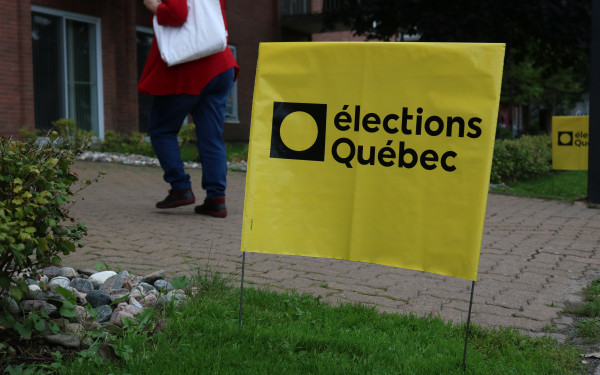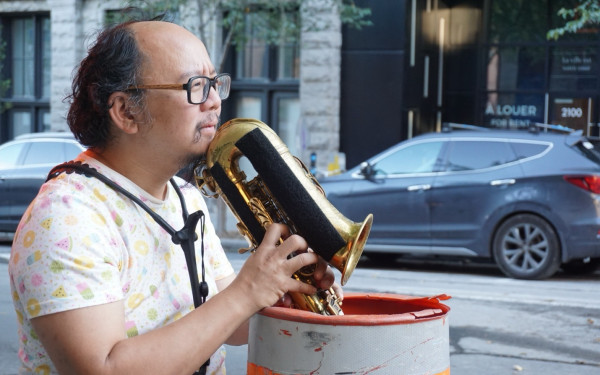Québec Solidaire Strives for Inclusivity
QS Wants to Make its Program More Accessible to Anglophones
“Anglophones are a minority population, and the more anglophones and any minorities are involved in a political movement, the stronger the arguments and the solutions are,” said Nora Loreto, a member of Québec Solidaire at a panel discussion on Thursday night.
QS’s Members of the National Assembly spoke on sovereignty and making their program more accessible to English speaking Quebecers to an audience of about 75 in St. Henri.
Press Secretary for QS, David Alfaro Clark noted that the event was a grassroots initiative organized by English-speaking party members, known as the Québec Solidaire Volunteer Network. He said the main topic of the event was to make the party more available to anglophones.
On the panel was Loreto, a Quebec City-based activist, former New Democratic Party member Tyrone Benskin, labour lawyer Molly Alexander, and MNA for Mercier, Amir Khadir.
“I must admit we have been lazy in our thinking, and trying to do something to open up the dialogue these past 10 years in the direction of anglophones, but also immigrants, newcomers, and racialized communities,” said Khadir.
When the party first emerged, it was very diverse.
“In principle, all the elements were there so that we would be very conscious about the necessities and also well equipped in terms of people with backgrounds and knowledge of our situations to go there,” said Khadir. “But we didn’t go there.”
He added that at first they thought it was better not to have a committee for inclusion, immigrant section or anything similar. Since they addressed problems and everyone could participate in their association on an equal level, they thought that would suffice. They are now reconsidering this.
Alexander claimed that the QS still has a very “pale, male, and stale image.” She doesn’t think the party is putting forth the diversity it hopes to represent.
“The party has a vision of the future of the province that is pluralist. I want to see a more diverse group of people that are able to bring the concerns of their community forward,” Loreto said. “This is something that we on the left in general—and certainly the Parti Québec Solidaire—have to do better.”
The way in which the party presents its pro-sovereignty stance in their program has caused some problems with the anglophone community. Khadir explained that the party feels that anglophones are afraid of the possibility of Quebec separating. He said that instead of trying to explain their position, the organization took a defensive approach so the anglophone community wouldn’t fear them. In consequence, the anglophone community also approached them defensively.
“There are shared struggles that we need to work on together but arguments about language and sovereignty often get in the way of building the coalition that will be necessary to defeat the neoliberal parties that have dominated the National Assembly for far too long,” event organizer Clara-Swan Kennedy said.
“There are a lot of people who speak English that never feel like Quebecers,” attendee Zolani Stewart claimed during question period.
He said that though some anglophones in Quebec are here, they are never really here.
“When we talk about the sovereignty of the nation, well, who is even part of the nation? Who gets to be self-determined?” he asked.
Kennedy said that the goal is to create a discussion about common progressive aspirations.
“Anglophones are a racially and culturally diverse group that are an integral part of Quebec heritage and society, and are an essential part of any inclusive vision of Quebec’s destiny,” she said. “I believe that dismissing anglo fears or reasoning away their concerns is divisive and counterproductive.”



_1_600_375_90_s_c1.jpg)
_600_375_90_s_c1.jpg)

